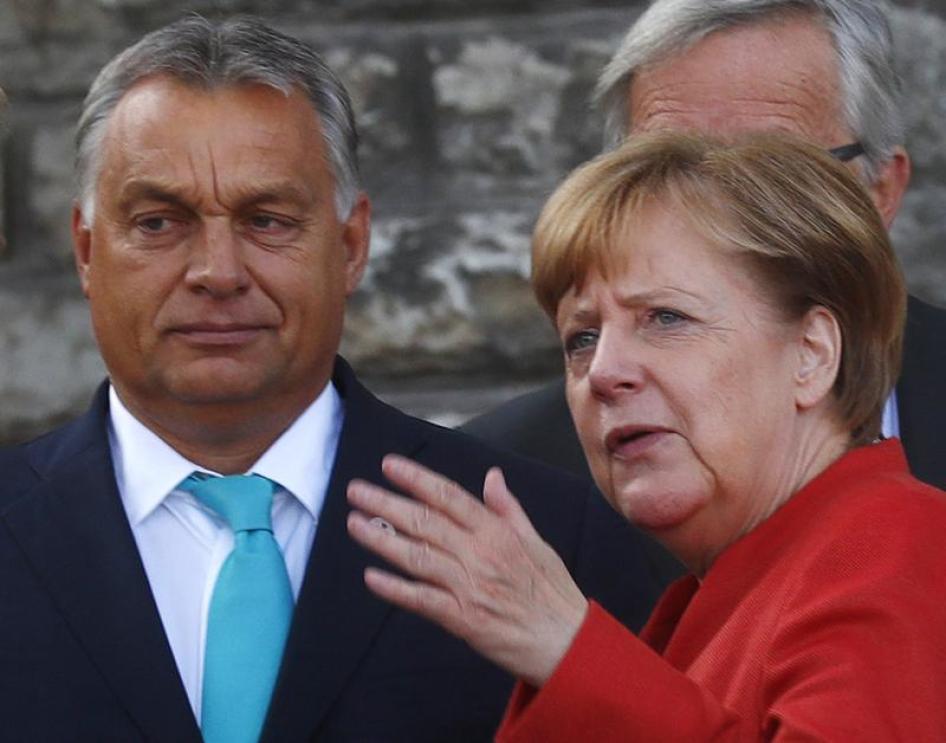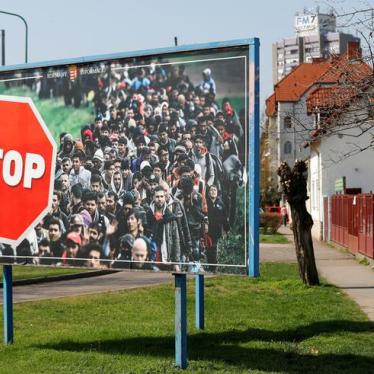Last week, the European People's Party (EPP) had a chance to stand up for its values and those of the European Union. But instead, it ducked the issue.
The umbrella group of center-right and Christian democrat parties in European institutions came together first in Warsaw and then in Munich. The elephant in the room? The conduct of its most renegade party member, Hungary's Fidesz.
A year earlier, the EPP leadership had warned Fidesz's leader and Hungarian prime minister Viktor Orban that the party needed to live up to EPP values.
But rather than doing so, Fidesz has further reduced space for civic debates in Hungary, demonising critics and smearing media and non-governmental groups.
Populist and xenophobic campaigns accompanied migration policies that are the most restrictive, brutal and degrading throughout the EU.
Hungary is on the verge of forcing the Central European University out of the country, only because Hungarian-born philanthropist and billionaire George Soros is funding it. And Hungary's parliament is now debating a new law that would make is virtually impossible for asylum-seekers to receive protection in Hungary, criminalise any assistance, research or advocacy on their situation, and make NGO and humanitarian workers face prison.
So, all eyes were on the EPP gatherings to see if the group were willing to follow their own standards, and expel Fidesz.
Yet, when the EPP meet in Warsaw on 5 June, its communique focused not on Hungary but on Poland. The EPP leaders stressed that "rule of law, the independence of justice and respect for all freedoms are the foundations of a healthy democracy".
The EPP is right to express concern about the rule of law in Poland, as judges there are being purged from their positions, and new appointments risk leading to a politicised takeover of the judiciary by the ruling coalition.
But while criticising Poland's government is right, it is also easy, since its ruling Law and Justice party is not in the EPP.
The EPP's silence on Fidesz shows a majority within the group still accept shielding Fidesz from criticism.
Voices of principle are starting to be heard within the group however. The Christian Democratic Appeal (CDA), Dutch EPP member, supported suspending Fidesz if it fails to abide by EU's democratic standards; others, including within Germany's Christian democratic party, warned Orban not to cross the line.
Just last week, the congress of the Finnish member party discussed if they could move forward with sanctioning Fidesz at EPP's upcoming Congress in November in Helsinki, as it had crossed all the lines.
EPP - size versus principles?
The worry, however, is that the EPP leadership, far from recognising that Fidesz has no place in a party that is supposed to stand for human rights and rule of law, has decided to embrace it more tightly.
Its motivation is presumably in part to remain the largest political group at the European Parliament, including after next year's elections.
So, rather than act on the concerns of the Dutch CDA party, the EPP leadership has taken the side of Fidesz in its 'war of words' with the CDA, calling on the Dutch to apologise for speaking the truth on Hungary's democratic rollback?
It may get worse.
Some within the ruling Law and Justice party in Warsaw clearly see the best resolution to the cognitive dissonance of the EPP criticising Poland's ruling party while remaining silent on Hungary's is to join the club.
Law and Justice is reportedly considering joining the EPP ahead of next year's European elections. And Viktor Orban is seeking to rebrand his "illiberal democracy" as a "Christian democracy," suggesting he sees himself and his party as part of the EPP's future.
This is a real moment of truth for Europe's centre-right and its adherence to EU's values of democratic pluralism and the rule of law.
It's also a real moment of truth for Manfred Weber, the EPP leader in the European Parliament who is said to have ambitions to become the next president of the European Commission.
The choice should be clear: to save the soul of the EPP, the group should take a principled stand for their own core principles and reject members who pursue and promote anti-democratic, anti-rule of law, and anti-human rights policies.
This means the expulsion of Fidesz until Hungary's ruling party reviews its rights-damaging policies, and sending a clear 'no' to any request by the Poland's Law and Justice Party to join a mainstream European alliance as it wrecks the country's independent judiciary.
In short, the choice for the EPP is between sanctioning those promoting authoritarian populism or accepting that they will succeed to change the EPP into something far darker and less democratic.









